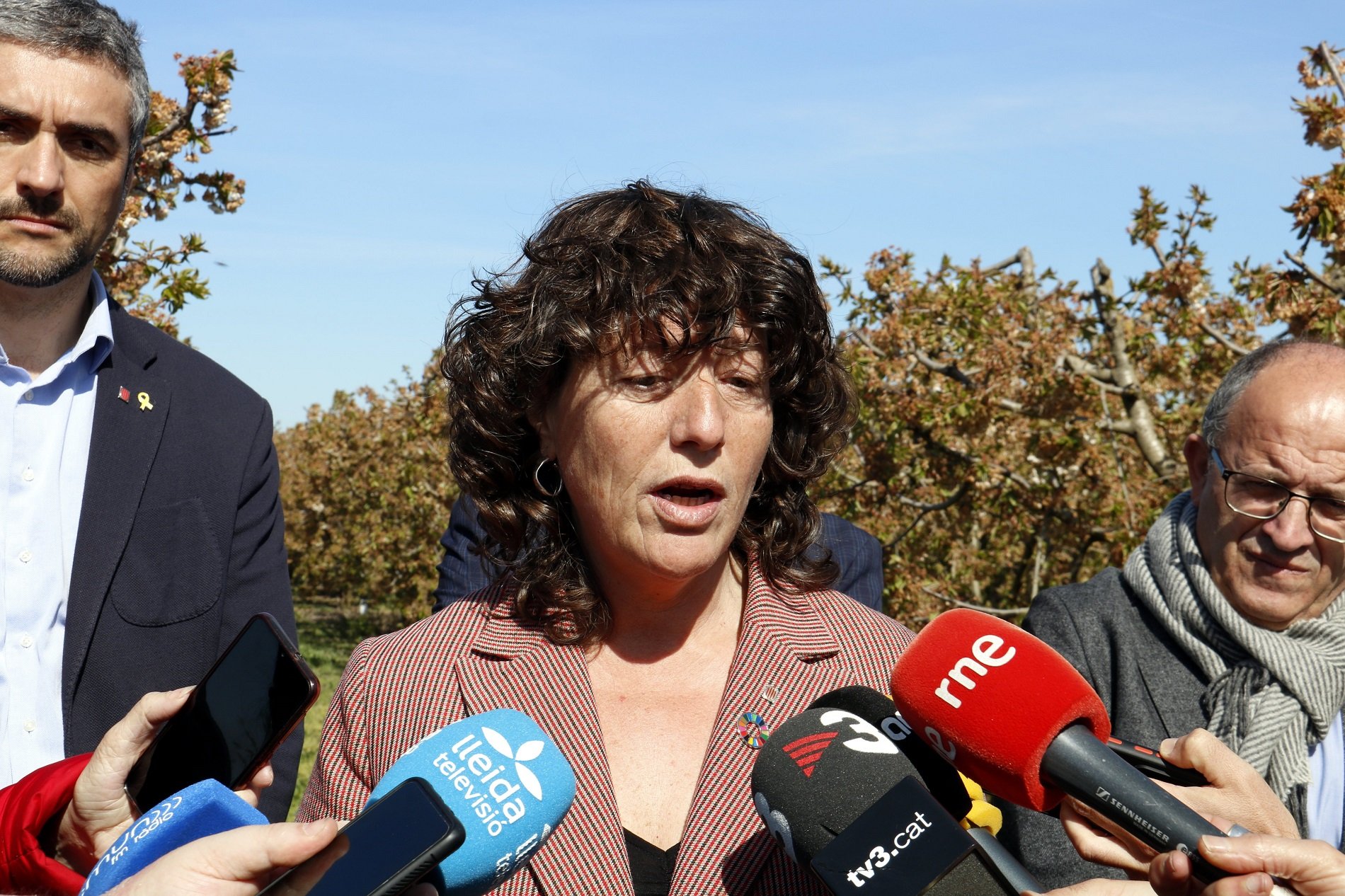The Catalan minister for Climate Action, Teresa Jordà has declared herself in favour of applying water restrictions to tourist establishments, which in Barcelona account for between 8% and 12% of water consumption. After 32 months of worsening drought in Catalonia, and the failure to reach accord at initiatives such as the Catalan government's Drought Summit, the minister has called for all to play their part. "It's everyone's business, there must be co-responsibility", said Jordà, who is "convinced", that the hoteliers association, which has already met with the Catalan Water Agency (ACA), will agree to apply restrictions. She was, however, critical of the slowness to act of the Ebro Hydrographic Conference (CHEbro), the Spanish government agency responsible for water management in about half of Catalonia.
The minister also expressed her regret that the crop of rainfed cereals in Catalonia, especially in areas such as the Empordà counties in the north, "has been practically lost", and that, if it continues without rain, the lack of moisture will also affect olive groves, vineyards and almond trees. "This is a question of weeks," said Jordà, who in an interview with Catalan public TV this Friday announced that she has asked the Spanish agriculture minister Luis Planas for direct assistance to farming and a more flexible agricultural policy. "We have to cover everything that is not covered by insurance to ensure that no farmer will be bankrupted," said the minister, who did not want to specify any figure. The loss of the rainfed cereal crop could also mean an increase in what consumers will pay at the supermarket, as the lack of cereals will make animal feed more expensive, the farmers warn.
Jordà asks the state for funding and coordination
Teresa Jordà also explained that water infrastructures, such as the Canal d'Urgell (Lleida), have to be modernized to make "more efficient" use of water and that the Catalan government is open to negotiating with the Spanish state in order to carry it out. "It is the only canal system in Spain that has not been modernized", said Jordà, in reference to the Urgell system whose water gates were closed off this week so that drinking water needs could be prioritised with remaining reserves. The minister commented that modernisation of the facility was "difficult" because it requires a high monetary investment - 1.2 billion euros was the figure quoted by the Catalan president, Pere Aragonès, on Wednesday. The minister explained that Catalan government intends to pay 60% of the cost of modernizing the canal, while it hopes that the Spanish government will pick up the tab for the remaining 40%, for which she will make a formal proposal to minister Luis Planas.
"Coordination and collaboration between administrations is the only way to get out of this", according to the minister, who gave as an example the inter-administrative cooperation to alleviate the degradation of the lands of the Ebre river and urged for the same to be done over the water shortage problem. "No administration can do it alone, on my part I have all the predisposition in the world, we can't gamble or destroy our future", said Jordà. She also explained that she has a very direct relationship with the Spanish deputy PM and Ecological Transition minister, Teresa Ribera, with whom she is to meet on May 22nd in Madrid.
Finally, Teresa Jordà was also critical of the Ebro Hydrographic Conference (CHEbro), the Spanish government agency responsible for water management in the entire Ebre river catchment, which includes about half of Catalan territory. Jordà criticized the body for not wanting to take restrictive measures with water consumption much earlier. "In October we had a meeting and their answer was along the lines of 'God will provide', and the Moreneta virgin can also help us, but that's not the point," said the councilor ironically. She believes that, if measures had been taken earlier, there would not be "such severe" restrictions now. At present, daily water consumption per person is limited to 230 litres, although the calculation is made at municipal level rather than measuring compliance by individuals. "If it doesn't rain, in September the Ter and Fluvià [in the Girona counties] will enter an emergency phase," said Jordà. She also explained that the Generalitat government is working on "more resistant" crops to deal with droughts.

